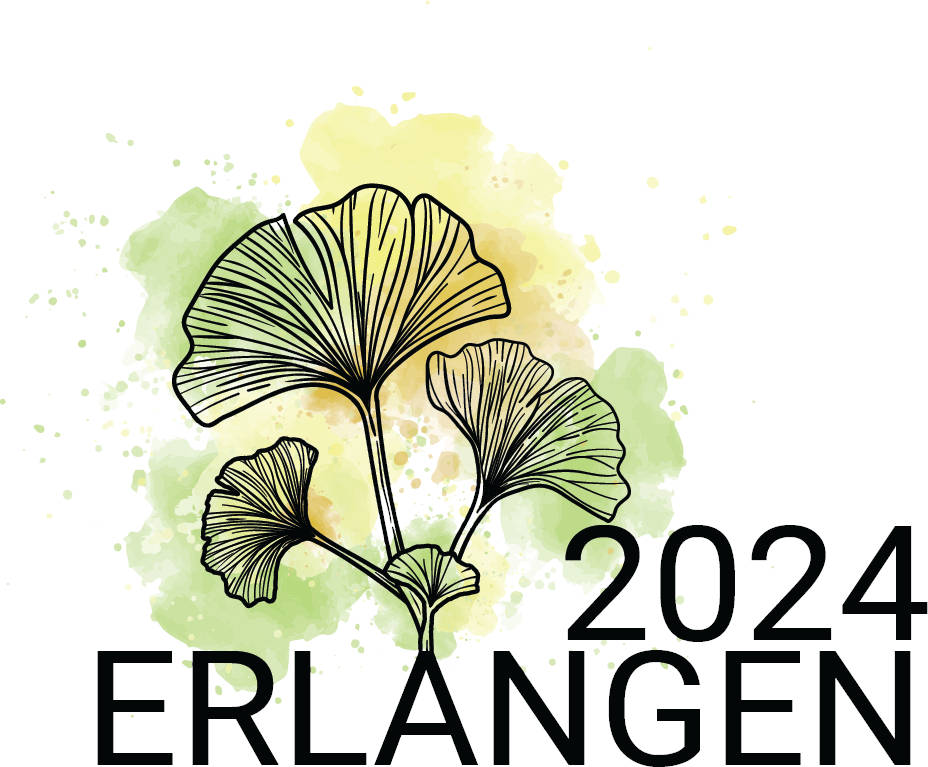All workshops take place on the morning of Tuesday 10th December. Each venue is within 15 minutes walk of the main train station, with the majority being within 5 minutes walk.
Fossils in thin section
Convenors: Prof. Axel Munnecke (FAU), Anna Merkel (FAU), Patrycja Dworczak (FAU)
Location: Palaeontology practical room, 2nd floor of GeoZentrum Nordbayern
Duration: 9:00–12:30
Maximum capacity: 16 participants (waitlist available)
In this workshop, participants will be guided through investigations of thin sections of recent invertebrate fossils under the microscope, followed by samples from various geological ages and depositional areas. Particular attention will be paid to the changes in the skeletal structures during diagenesis, especially with regard to the initial mineralogy (LMC, HMC, aragonite). Another focus is on the incorporation of organic matter into the shells, which can often be visualised even after diagenesis using special methods (e.g. fluorescence microscopy).
Fossil sampling biases and phylogenetics
Convenors: Dr Bethany Allen (ETHZ), Laura Mulvey (FAU), Prof. Rachel Warnock (FAU), Joëlle Barido-Sottani (Paris)
Location: Seminar room, ground floor of University Library
Duration: 9:00–12:30
Maximum capacity: 30 participants (waitlist available)
Time calibrated trees are needed to address a huge range of questions in paleobiology. Bayesian phylogenetics offers a framework that allows us to combine molecular and/or morphological character and fossil age information, together with models that capture assumptions about the data generating processes. Recent years have seen the development of increasingly realistic (but also more complex) models that can be used to generate more accurate time trees in paleobiology. Key developments include better options for modelling morphological evolution and the fossil sampling process. At the same time, studies have shown that model choice can have a large impact on our results. Which models are best suited to our data or research questions? How do we know if we’ve picked the best available model? The aim of this workshop is to explore issues around model choice in Bayesian divergence time estimation in paleobiology. First, we will provide an introduction to the theory and associated challenges. Topics will include models of discrete morphological character evolution, the fossilised birth-death (range) process, and model adequacy vs. model selection. Next, participants will have a choice of two tutorials they can choose from, which focus on different aspects of model choice. Finally, we will end with a short panel discussion on outstanding challenges and perspectives.
Rotten fossils: Experimental design in taphonomy
Convenors: Dr Thomas Clements (FAU) & Dr Orla Bath Enright (Stuttgart)
Location: Meeting room, ground floor of GeoZentrum Nordbayern
Duration: 09:30–12:00
Maximum capacity: 20 participants (priority to ECRs, waitlist available)
Experimental design is an integral part of hypothesis-driven taphonomic investigations that utilise decay experiments, however, many researchers do not receive any formal training to design robust and repeatable investigations. This workshop is aimed at researchers who work on any organismal group (plants, invertebrates, and vertebrates) and in any areas of taphonomic research (biostratinomy, mineralisation, maturation, etc.). Prior to the workshop we can introduce key literature to attendees who are interested in using decay experiments in their research but have no taphonomic experience. In this workshop, you will receive an introduction to experimental design which will outline the key principles of variable control, replicates, and repeatability — as well as budgeting, organism selection, euthanasia, equipment, etc. We will then undertake group activities to design a decay experiment from scratch. Lastly, there will be a forum for attendees to discuss any upcoming experimental work that they want to or are undertaking with an opportunity for guidance and actionable feedback from the presenters.
Deep-time paleogeography in R
Convenors: Dr Adam Kocsis & Dr Elizabeth Dowding
Location: Seminar room, ground floor of Henkestraße 91
Duration: 9:00–12:00
Maximum capacity: 15 participants (priority to ECRs, waitlist available)
Spatial calculations provide the foundation for analysis of geographic ranges and ecological niche modelling, which have become key components of deep-time ecological research. In practice, these rely on interacting with paleogeographic reconstructions, and the interaction of fossil occurrence records with the reconstructed spatial features such as plates, topographes and global climate layers. The workshop is aimed at paleobiologists who would like to get an introduction to visualisations and interacting with tectonic models and climate data in the R programming environment. In the workshop we will go through a series of tutorials that cover basic features of various R extensions that have relevance to the topic, including the 'rgplates' and 'chronosphere' packages. A basic understanding of R is required to participate in the workshop.

